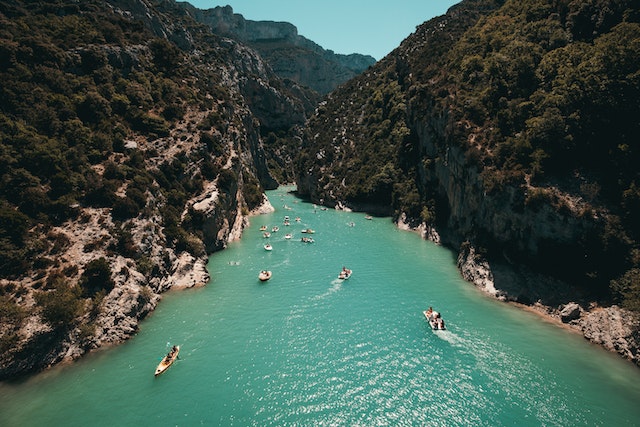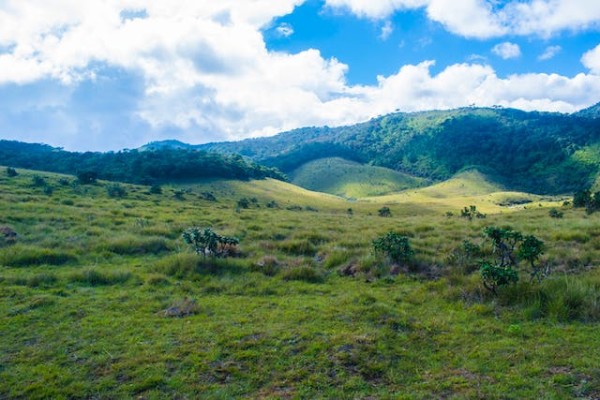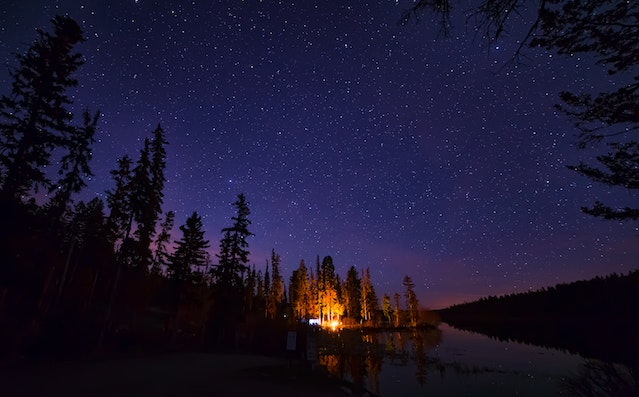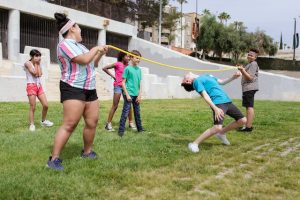Are you ready for the adventure of a lifetime? Get ready to embark on a camping trip that will leave you breathless and filled with joy!
Camping activities for people with disabilities are here to prove that nothing can hold you back from experiencing the great outdoors. With accessible trails and campgrounds, you’ll have the opportunity to explore nature like never before. Equipped with adaptive equipment and gear, you’ll conquer any obstacle that comes your way.
Engage in inclusive recreational activities that will make you feel like a true adventurer. And don’t forget about the supportive camping communities that will welcome you with open arms.
Planning a disability-friendly camping trip has never been easier, so get ready to create memories that will last a lifetime. Get ready to belong, to connect, and to experience the thrill of camping like never before.
1. Accessible Trails and Campgrounds

Experience the freedom and joy of exploring accessible trails and campgrounds designed to empower individuals with disabilities. When you embark on an adventure in the great outdoors, you’re not limited by your mobility challenges. Accessible trails and campgrounds provide a space where you can fully immerse yourself in nature, fostering a sense of belonging and connection.
Picture yourself traversing a trail specifically designed to accommodate wheelchairs and walkers. The path is smooth, wide, and well-maintained, ensuring a seamless journey through breathtaking landscapes. As you roll along, you can breathe in the fresh air, listen to the sounds of birds chirping, and feel the warmth of the sun on your face. This accessible trail allows you to experience the wonders of nature on your own terms, opening up a world of possibilities.
At the accessible campgrounds, you’ll find facilities that have been thoughtfully designed to cater to your needs. Campsites with level ground and accessible picnic tables provide a comfortable space for you to gather with friends and family. Accessible restrooms and showers ensure that you can maintain your personal hygiene with ease. Additionally, many campgrounds offer adaptive equipment rentals, such as all-terrain wheelchairs or beach-friendly mobility devices, allowing you to fully engage in various recreational activities.
By providing these accessible trails and campgrounds, we aim to create an inclusive environment where you can experience nature’s beauty and enjoy the sense of belonging that comes with being part of a community. So, pack your bags, gather your loved ones, and embark on an unforgettable adventure in the great outdoors. The freedom and joy of exploring accessible trails and campgrounds await you.
2. Adaptive Equipment and Gear
Utilizing specialized gear and equipment can significantly enhance your comfort and independence while camping, especially if you face unique challenges. There are many adaptive options available that can make your camping experience more enjoyable and accessible.
One essential piece of equipment is a wheelchair-accessible tent. These tents feature ramps and wider doorways, allowing you to easily enter and move around inside. They’re designed to accommodate wheelchairs, providing you with a comfortable and safe space to sleep and relax.
Another helpful tool is an all-terrain wheelchair. These wheelchairs are specifically designed to navigate rugged terrains, such as trails and uneven surfaces. With sturdy wheels and suspension systems, they allow you to explore nature without limitations.
For individuals with limited mobility, adaptive hiking poles and walking aids can provide stability and support. These tools are lightweight and adjustable, allowing you to maintain balance and move confidently on various terrains.
Additionally, there are adaptive sleeping systems available that can make sleeping outdoors more comfortable. These systems include specialized sleeping bags and mattresses that provide extra support and insulation.
By utilizing adaptive equipment and gear, you can fully enjoy the beauty of nature and participate in camping activities with ease. Remember, there are resources and options available to make camping accessible for everyone, so you can feel a sense of belonging and connection in the great outdoors.
3. Inclusive Recreational Activities
Get ready to embrace a wide range of inclusive recreational options that’ll make your camping adventures even more enjoyable and fulfilling. When it comes to inclusive recreational activities, there are plenty of options available for people with disabilities. One popular activity is adaptive hiking, where trails are modified to ensure accessibility. These trails often have smooth surfaces, wider paths, and gentle slopes, allowing everyone to enjoy the beauty of nature.
Additionally, you can try adaptive fishing, which provides specialized equipment and techniques for individuals with disabilities to participate in this relaxing and rewarding pastime.
If you’re looking for more adrenaline-pumping activities, consider adaptive rock climbing. With the help of trained professionals and specialized equipment, individuals with disabilities can conquer the challenges of climbing walls or even outdoor cliffs.
For those who prefer water-based activities, adaptive kayaking and canoeing are great options. These activities offer modified equipment, such as stabilizing outriggers or adaptive paddles, to ensure safety and accessibility.
Inclusive recreational activities not only provide physical benefits but also create a sense of belonging and community. It’s an opportunity to connect with others who share similar experiences and interests.
4. Supportive Camping Communities
Join a supportive camping community where you’ll find a sense of belonging and connect with others who share similar interests and experiences. These communities are designed to provide a safe and inclusive space for individuals with disabilities to enjoy the great outdoors. By joining one of these communities, you can participate in a variety of camping activities that cater to your specific needs and abilities.
In these supportive camping communities, you’ll have the opportunity to engage in a range of recreational activities, such as hiking, fishing, and kayaking. These activities are adapted to accommodate individuals with disabilities, ensuring that everyone can participate and enjoy the experience. Whether you have mobility challenges or sensory impairments, these communities strive to make camping accessible to all.
To give you an idea of the inclusive activities available in these communities, here’s a table showcasing some options:
| Activity | Description |
|---|---|
| Adaptive hiking | Guided hikes with accessible trails and equipment |
| Accessible fishing | Fishing excursions with adaptive gear and assistance |
| Adaptive kayaking | Kayaking trips with specialized equipment and support |
| Nature photography | Workshops and outings for photographers of all abilities |
| Campfire storytelling | Gatherings to share stories and connect with fellow campers |
By joining a supportive camping community, you’ll not only have the opportunity to participate in these activities, but you’ll also form meaningful connections with others who understand and appreciate your journey. Together, you can create lasting memories and foster a sense of belonging in the great outdoors.
5. Tips for Planning a Disability-Friendly Camping Trip
To ensure your camping trip is accessible and enjoyable for everyone, consider these helpful tips when planning for individuals with disabilities.
First and foremost, make sure to choose a campground that offers accessible facilities, such as paved paths, wheelchair-accessible bathrooms, and accessible camping sites. This will ensure that everyone can move around easily and independently.
When packing for the trip, keep in mind the specific needs of individuals with disabilities. Bring any necessary medical equipment, such as extra batteries for wheelchairs or hearing aids, and don’t forget to pack any medications that may be needed. It’s also a good idea to bring extra supplies, such as extra blankets or pillows, to ensure comfort for everyone.
During the camping trip, encourage individuals with disabilities to participate in activities to the best of their abilities. Adapt the activities as needed to ensure inclusion and provide any necessary support. Additionally, create a supportive and inclusive environment by promoting understanding and empathy among all campers.
Lastly, don’t forget to communicate with the campground staff about the specific needs of individuals with disabilities. They may be able to provide additional assistance or resources to make the camping experience even better.
By following these tips, you can ensure that everyone feels welcomed and included during the camping trip.
Frequently Asked Questions
Are there any specific guidelines or regulations for accessible trails and campgrounds that people with disabilities should be aware of?
When camping, it’s important for people with disabilities to know about guidelines and regulations for accessible trails and campgrounds. These rules ensure that everyone can enjoy the experience and feel included.
What types of adaptive equipment and gear are commonly used by individuals with disabilities when camping?
When camping, individuals with disabilities commonly use adaptive equipment and gear such as wheelchair-friendly tents, all-terrain wheelchairs, assistive hiking poles, adaptive sleeping bags, and portable ramps for accessibility.
Are there any specific inclusive recreational activities that are particularly popular among people with disabilities?
There are many inclusive recreational activities that are particularly popular among people with disabilities. These activities provide opportunities for everyone to participate and feel a sense of belonging, regardless of their abilities.
Can you provide examples of supportive camping communities that have been successful in accommodating people with disabilities?
You’ll find supportive camping communities that have successfully accommodated people with disabilities. They provide accessible facilities, inclusive activities, and a welcoming environment. Examples include Camp Jabberwocky and Camp Courageous, where everyone feels included and supported.
What are some additional tips or resources for planning a disability-friendly camping trip that may not have been covered in the article?
Here are some additional tips and resources to plan a disability-friendly camping trip: research accessible campgrounds, pack necessary equipment and supplies, consider the terrain and weather conditions, and check for local organizations or groups that offer support.
Conclusion
With accessible trails and campgrounds, adaptive equipment and gear, inclusive recreational activities, and supportive camping communities, the possibilities are endless. Don’t let a disability hold you back from experiencing the great outdoors. With a little planning and some imagination, you can have the camping trip of a lifetime. So pack your bags, grab your gear, and get ready to embark on an adventure that will leave you breathless (in a good way!). Happy camping!





